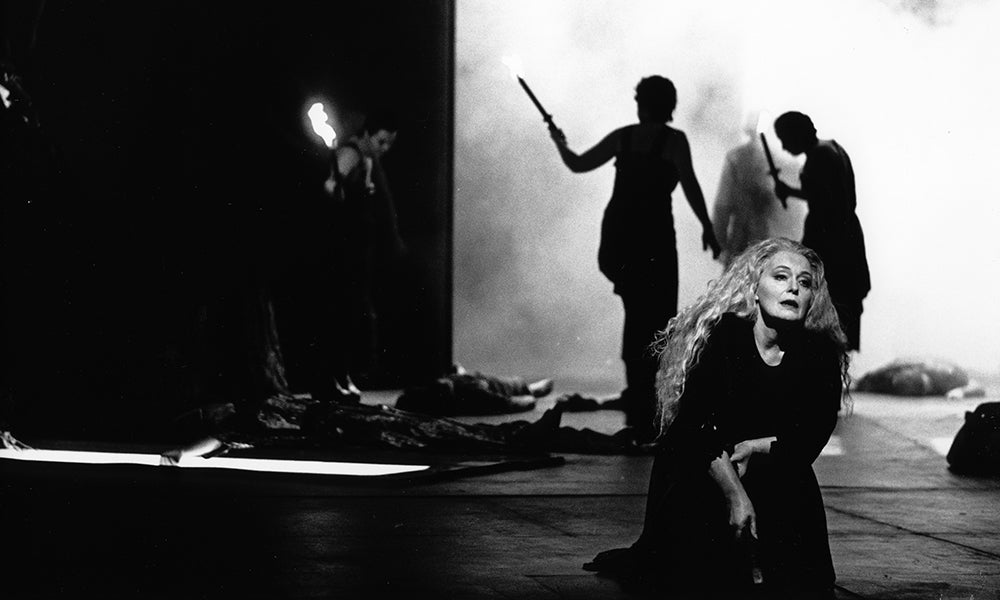
The Guardian: Elektra, Gwyneth Jones & The OSR - Live recording Geneva 1990
Recordings of Elektra are proliferating at present; hard on the heels of Semyon Bychkov's new version of Hänssler, reviewed in these pages last month, come two performances, each of which serves the work better than Bychkov's impressive, if gravely flawedsset.
Both derive from radio archives. The Walhall label offers Karl Böhm's justly famous 1955 Bavarian State Opera performance, hitherto available only as a bootleg. From Claves, meanwhile, comes a 1990 version from the Grand Théâtre de Genève, conducted by Jeffrey Tate.
They're very different, though both are dominated by the presence of Leonie Rysanek, one of the greatest postwar Strauss interpreters. She remains uniquely identified with the role of Chrysothemis, which she sings for Böhm.
Towards the end of her career, however, she gravitated towards mezzo roles, and Klytemnestra, which she sings for Tate, became very much her calling card. Rysanek was noted above all for her voluptuous tone and for the often-disturbing psychosexual emphasis she brought to any character she chose to play.
Her Chrysothemis - seething with frustration, and voiced with almost obscene rapture - is one of the most stupendous operatic performances you will ever hear. Her Klytemnestra, meanwhile, is unusually tragic: a once sensual woman, now racked by guilt and haunted by unendurable memories of past happiness.
Böhm places her Chrysothemis along-side the Elektra of Christel Goltz and the Klytemnestra of Jean Madeira. Madeira, very regal, is all sleaze and uptight self-justification. Goltz, if occasionally unsteady, is dramatically outstanding, terrorising those around her with horrifically realised scorn and fury.
Tate's equally fine cast includes Gwyneth Jones - in better voice than on many of her studio recordings - as an implacable, unusually aristocratic Elektra, and Anne Evans, beautiful if placid, as Chrysothemis.
When it comes to the conducting, however, Böhm has the advantage, generating steady tension throughout and creating a glutinous, oppressive soundscape that seems to slither and congeal like blood.
Tate aims for greater emotional extremes, though he awkwardly lets the voltage drop in the build up to the Recognition Scene, while the orchestral sound has a metallic glint like the blade of the axe that forms the focus of Elektra's obsessions. It’s a fine performance, but the combination of Rysanek and Böhm makes the Walhall set essential listening.
Article source: The Guardian, 2006
Online
iTunes
qobuz
Google
Amazon Music
Spotify
Collections
5 Diapason
Gwyneth Jones
Opera vocal
Orchestre de la Suisse Romande
Rarities
Richard Strauss


Commentaires
0 Commentaires